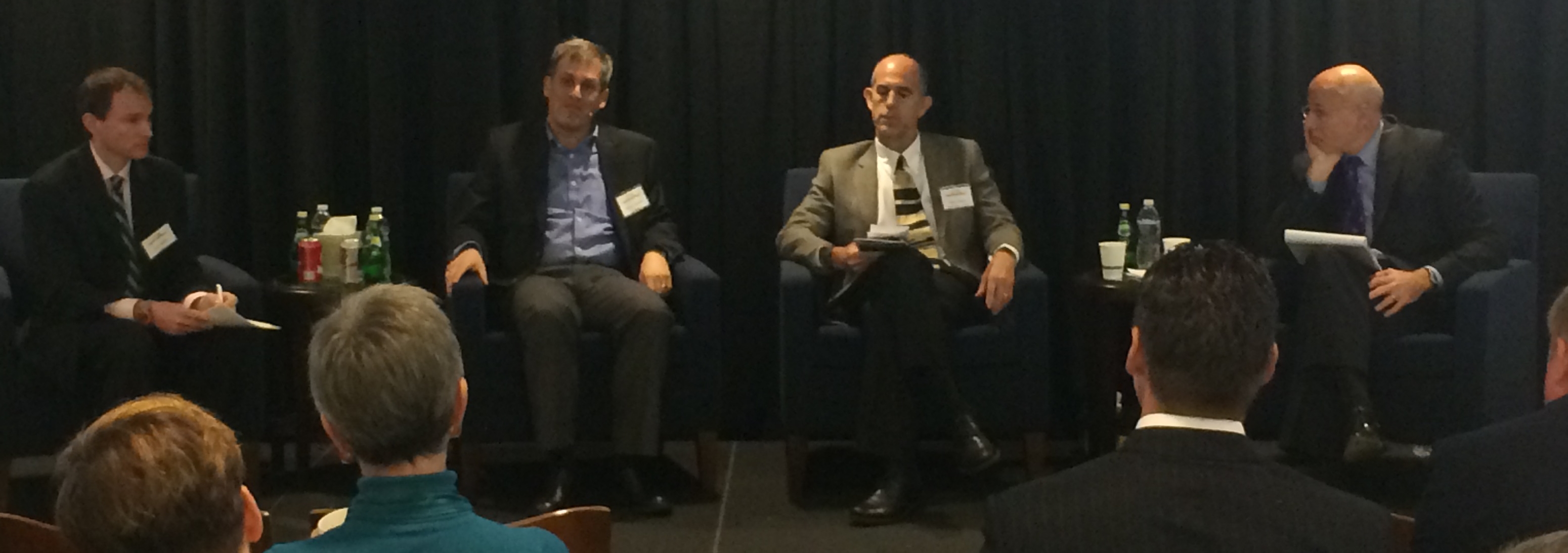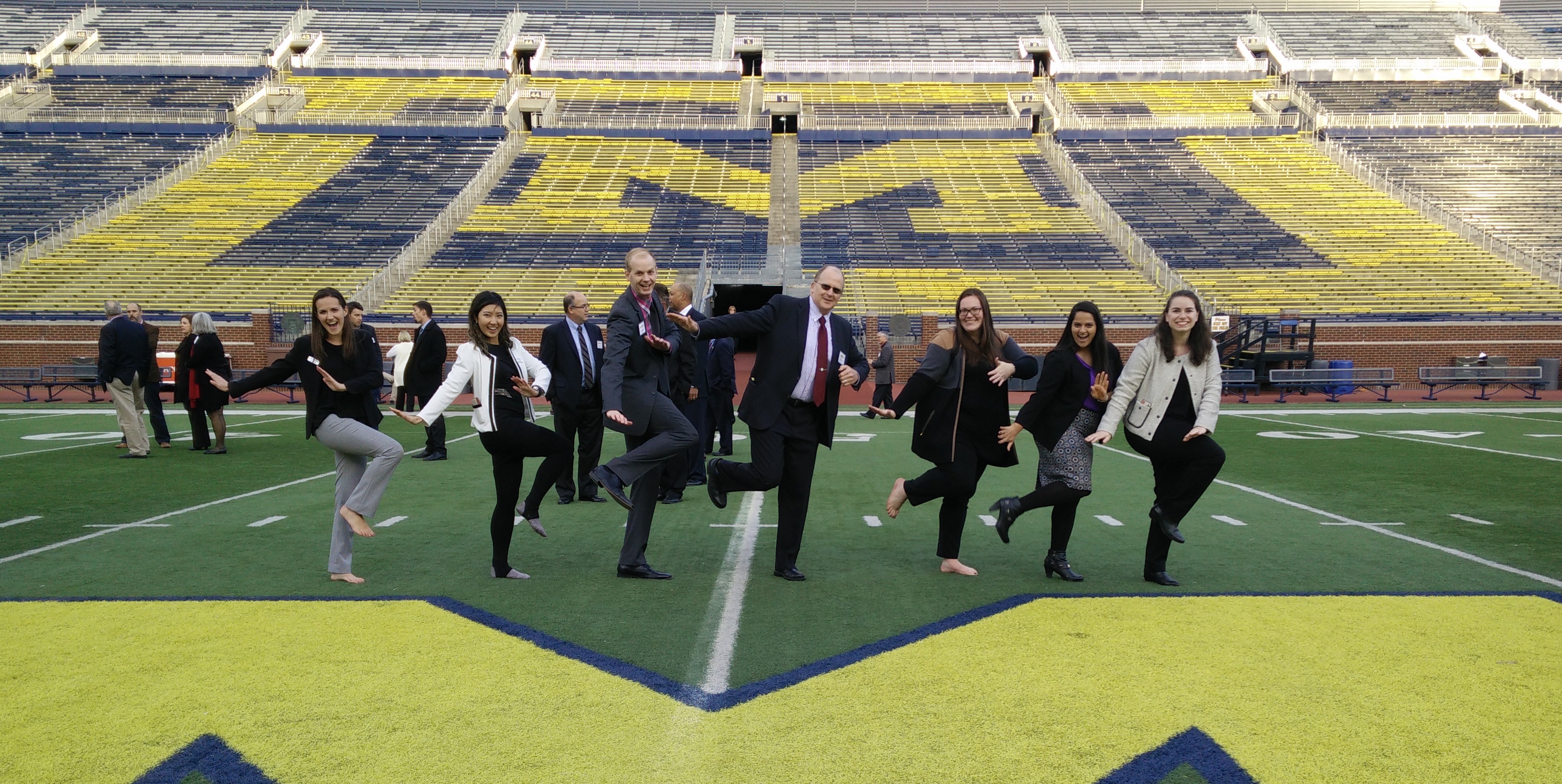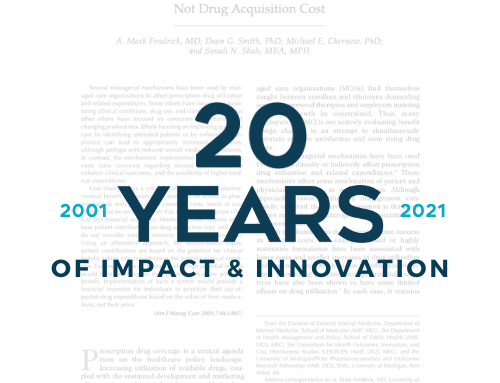
On October 26, 2016, leaders from across the health care spectrum came together to discuss strategies for tackling some of the industry’s most relevant challenges at the University of Michigan Center for Value-Based Insurance Design‘s 2016 V-BID Summit: Precision Medicine Needs Precision Benefit Design.
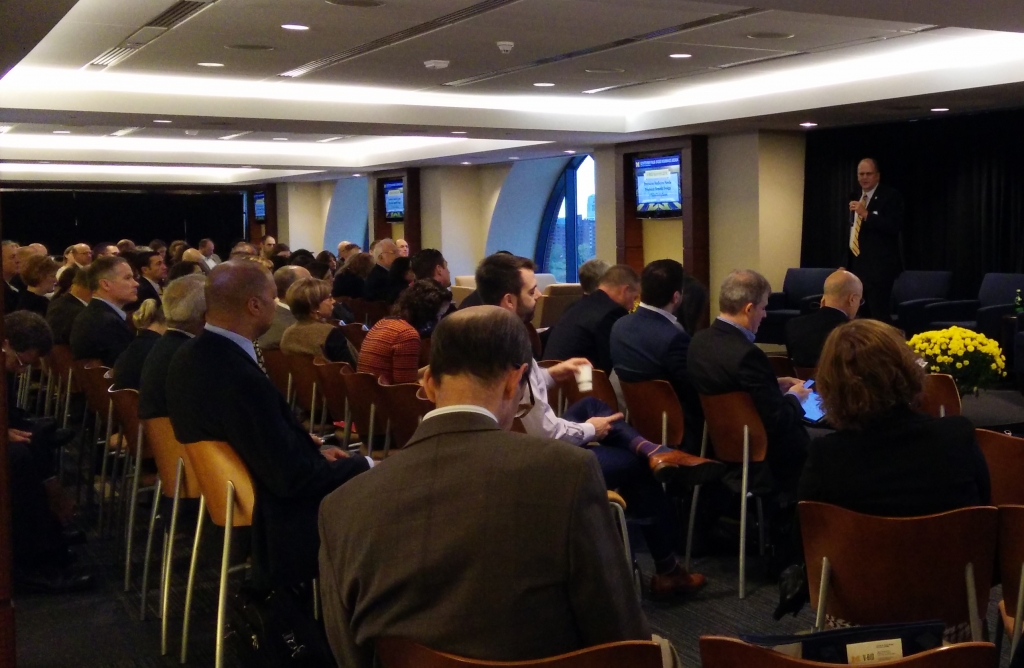
Dr. Marschall S. Runge, University of Michigan Health System Executive Vice President for Medical Affairs, delivered the welcoming remarks to kick off Wednesday’s panel discussions. The day-long summit consisted of 4 interactive sessions: Aligning Precision Medicine with Precision Payment and Benefit Design, Insured But Not Covered – Reducing Underinsurance, Determining Value, and Addressing Low-Value Care. All panels were moderated by Clifford Goodman of the Lewin Group.
For more information, please view the V-BID Summit Program and agenda.
Aligning Precision Medicine with Precision Payment and Benefit Design
Panelists:
- David Cowling, California Public Employees’ Retirement System (CalPERS)
- Claire Levitt, Deputy Commissioner, NYC Mayor’s Office of Labor Relations
- John Rother, National Coalition on Health Care
Moderator: Clifford Goodman, Lewin Group
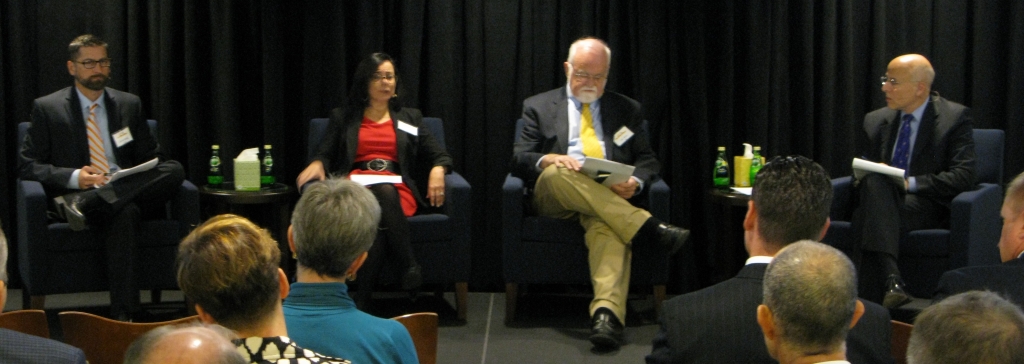
In the first session, panelists kicked off the day by talking about their approaches to incorporating V-BID. David Cowling (CalPERS) spoke about how to incorporate V-BID more broadly into plan design and the panel quickly jumped right into the need to align provider and consumer initiatives to ultimately achieve the Triple Aim. Claire Levitt (NYC Mayor’s Office) discussed shifting care to the appropriate setting by establishing the appropriate co-payments, so we can move towards providing high-value health care. John Rother (National Coalition on Health Care) highlighted the importance of changing provider behaviors in conjunction with consumer behaviors to aid in reducing low-value care. The panel agreed that in order to be most successful, provider and consumer incentives need to be aligned and must be done in tandem with addressing high-price and low-value care. Much of this work can be guided through the application of clinical nuance. The conversation concluded with an enthusiastic discussion about how precision medicine may be re-framing the definition of health equity, as we work to ensure that access to services will allow for optimal care for everyone’s respective needs. This new approach illustrates how, as Claire Levitt said, “equity is not one size fits all.”
For additional information, please read the American Journal for Managed Care (AJMC) blog post: The Changing Definition of Equity in Healthcare
Insured But Not Covered - Reducing Underinsurance
Panelists:
- Gary Bacher, Smarter Healthcare Coalition
- Michael Chernew, Harvard University
- Robert W. Dubois, National Pharmaceutical Council
Moderator: Clifford Goodman, Lewin Group
The second panel began with health experts discussed the evolution of the issue of underinsurance and how V-BID principles can address the burden this has on key health care stakeholders – most importantly patients. Gary Bacher (Smarter Healthcare Coalition) reflected on the impact of high deductible health plans and the new financial challenges facing consumers; whereas before there was the potential to suffer a catastrophic financial event from medical bills, the new landscape has prevented some individuals from seeking care because of high, unmet deductibles. One potential solution is the high-value health plan. Michael Chernew (Harvard University) spoke to an underlying cause of this issue: the high price of care. “We don’t have a reasonable mechanism for segments of the population to afford care as currently presented. Benefit design is the easiest lever to pull,” he said. Robert Dubois (National Pharmaceutical Council) echoed the conversation around equity that began in the first panel, mentioning the need to balance equity with beneficence and autonomy. The panel concluded by discussing how to manage two growing issues: 1) growing inequality impacting health care benefits; and 2) managing the cost of care based on conditions.
For additional information, please read the American Journal for Managed Care (AJMC) blog post: Addressing Underinsurance With a More Clinically Nuanced Approach
[/fusion_builder_column][/fusion_builder_row][/fusion_builder_container]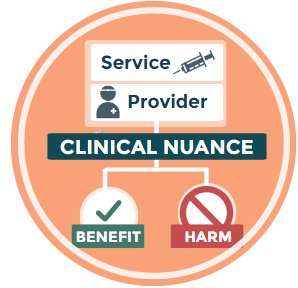 Determining Value (Session 3)
Determining Value (Session 3)
Panelists:
- Eleanor Perfetto, National Health Council
- Jason Spangler, Amgen Inc.
- Richard Willke, ISPOR
Moderator: Clifford Goodman, Lewin Group
 After a break for lunch and inspiring remarks from Congresswoman Debbie Dingell about ensuring that solutions in health care are consumer-centric, the summit resumed with three health care experts discussing what value is and why it’s important. The session kicked off by addressing how pervasive value nomenclature is throughout health care and how it does not always mean the same thing. Jason Spangler (Amgen) emphasized that value is not the same as budget impact, and it’s only part of the equation when calculating value. Eleanor Perfetto (National Health Council) shared insights into the consumer perspective on value, highlighting study findings that show consumers are seeking high quality health care over “bang for your buck.” Richard Willke (ISPOR) highlighted the need to educate providers on cost effectiveness, like the Choosing Widely initiative, and developing tools to measure value.
After a break for lunch and inspiring remarks from Congresswoman Debbie Dingell about ensuring that solutions in health care are consumer-centric, the summit resumed with three health care experts discussing what value is and why it’s important. The session kicked off by addressing how pervasive value nomenclature is throughout health care and how it does not always mean the same thing. Jason Spangler (Amgen) emphasized that value is not the same as budget impact, and it’s only part of the equation when calculating value. Eleanor Perfetto (National Health Council) shared insights into the consumer perspective on value, highlighting study findings that show consumers are seeking high quality health care over “bang for your buck.” Richard Willke (ISPOR) highlighted the need to educate providers on cost effectiveness, like the Choosing Widely initiative, and developing tools to measure value.
For additional information, please read the American Journal for Managed Care (AJMC) blog post: Defining and Paying for Value in Healthcare
 Addressing Low-Value Care (Session 4)
Addressing Low-Value Care (Session 4)
Panelists:
- William Hazel, Secretary of Health and Human Services, Commonwealth of Virginia
- Lynn Quincy, Consumers Union
- Daniel Wolfson, ABIM Foundation
Moderator: Clifford Goodman, Lewin Group
The final panel discussed how to address low-value care, a topic that was mentioned throughout the day. Secretary William Hazel (Commonwealth of Virginia) emphasized the impact of value on patients, particularly the ones who are most dependent on a highly functional health care system, such as children. Daniel Wolfson (ABIM Foundation) echoed the need to address low-value care and cited the approach to clear, compelling messaging that Choosing Wisely uses to educate providers. Lynn Quincy (Consumers Union) underscored the consumer’s perspective and role in ensuring the shift to high-value health care.
For additional information, please read the American Journal for Managed Care (AJMC) blog post: Removing Low-Value Care From the Healthcare System
The Summit took place at the University of Michigan football stadium, a.k.a. ‘the Big House.’ Attendees tweeted using the hashtag #VBIDatTheBigHouse and viewers can follow the discussion post-event on Storify.
For more information on the 2016 V-BID Summit, please contact the V-BID Center.
Coments from the V-BID Visionaries
Dr. Mark Fendrick Shares V-BID’s Exciting Implications for the Future
Dr. Michael Chernew Discusses Underinsurance and How to Address It
V-BID at the Big House
The 2016 V-BID Summit was held at the University of Michigan Stadium. The V-BID staff and summit attendees took full advantage of the opportunity to tour the stadium, locker room, and football field – as evidenced by the photos and video below. (Click to enlarge photos)

